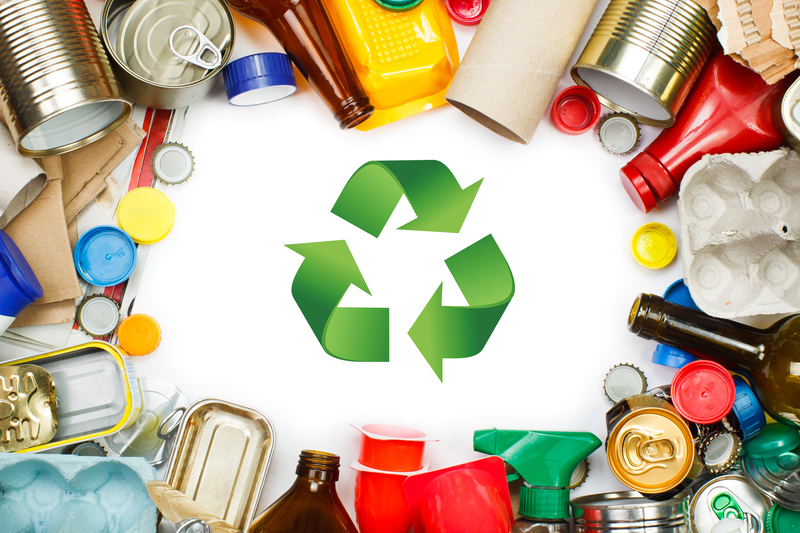In an ever-evolving digital world, the landscape of waste is changing dramatically. An increasing amount of electronic waste (e-waste) ends up in landfills each year, posing significant environmental hazards. The recycling of e-waste is not just a necessity; it's a pivotal step towards a greener, more sustainable future. By exploring how recycling e-waste alters our planet, we can uncover avenues for environmental preservation and foster technological advancements.
The Growing Threat of E-Waste
As technology advances, so does the turnover of electronic devices. Old gadgets make way for the newest innovations, often ending up as e-waste. Globally, we produce approximately 50 million tons of e-waste annually, with only about 20% being recycled properly. This vast amount of waste includes not just obvious items like old phones and computers, but also many household appliances.
Why is e-waste a problem? The improper disposal of these electronic items results in the release of toxic substances such as lead, mercury, and cadmium into the environment. These hazardous materials can cause severe health problems in humans and animals alike.

Economic and Environmental Benefits of Recycling E-Waste
- Resource Recovery: Recycling e-waste allows for the recovery of precious metals. Gold, silver, copper, and other valuable materials can be extracted from old electronics and reused in new products, reducing the need for virgin resource extraction.
- Energy Savings: The process of recycling electronic waste uses significantly less energy compared to mining new raw materials. For example, recycling one million laptops saves energy equivalent to electricity used by more than 3,500 homes in a year.
- Reduction of Greenhouse Gases: Effective recycling reduces greenhouse gas emissions by minimizing the need to manufacture new products from scratch. By decreasing the demand for new resource extraction, we mitigate the environmental impact of mining and manufacturing processes.
- Job Creation: Recycling and refurbishing e-waste create employment opportunities. Jobs in the recycling industry span various sectors, from collection and transportation to processing and resale.
Global Efforts and Innovations in E-Waste Recycling
Countries around the world recognize the importance of addressing the e-waste challenge. Various legislations and initiatives have been put in place to encourage better recycling practices:
- Extended Producer Responsibility (EPR): Many countries enforce EPR policies, which mandate that manufacturers take responsibility for the disposal of their products. This encourages the design of more sustainable electronics.
- Innovative Recycling Technologies: Advanced technologies such as robotics and artificial intelligence are being developed to improve the efficiency of sorting and processing e-waste.
- Global Partnerships and Agreements: International collaborations like the Basel Convention work to regulate the transboundary movements of hazardous wastes, preventing e-waste dumping in developing nations.
From Waste to Resource: The Circular Economy
The concept of a circular economy plays a crucial role in e-waste recycling. Unlike the traditional linear economy model (take-make-dispose), a circular economy aims to keep resources in circulation for as long as possible. By doing so, it places a strong emphasis on the lifecycle of products, promoting recycling and remanufacturing practices.
The impact of recycling e-waste through a circular economy is profound:
- Prolonged Lifecycle of Electronics: Designing electronics with recyclability in mind extends their lifecycle, meaning they can be reused, repaired, and recycled more efficiently.
- Minimized Environmental Footprint: By using recycled materials, we reduce the demand for new raw materials, which lessens the burden on natural resources.
- Enhanced Consumer Awareness: With the rise of eco-labeling and sustainable certifications, consumers are more informed about the environmental impact of their electronic purchases.

Challenges and the Way Forward
Despite the benefits, recycling e-waste is not without challenges:
- Collection and Logistics: Efficiently collecting and transporting e-waste from consumers to recycling facilities remains a significant hurdle, especially in remote or undeveloped regions.
- Data Security Concerns: Before electronics are recycled, sensitive data must be adequately wiped, posing a cybersecurity challenge.
- Global Disparities: In many developing countries, informal e-waste recycling practices prevail, often without adequate safety measures, leading to environmental and health hazards.
To truly embrace a green future through e-waste recycling, a concerted effort is needed from governments, businesses, and individuals alike. Strong regulatory policies and consumer education campaigns are vital to changing behaviors and attitudes toward e-waste disposal.
Conclusion: Embracing a Sustainable Digital Age
The journey to a greener future through recycling e-waste is both achievable and necessary. By valuing our discarded electronics as potential resources rather than waste, we can significantly alter the environmental landscape and conserve precious materials for future generations.
Ultimately, implementing effective e-waste recycling practices not only aids in environmental preservation but also accelerates technological innovation. In this way, by fostering a sustainable digital age, we can harness the power of recycling to create a better world for everyone.